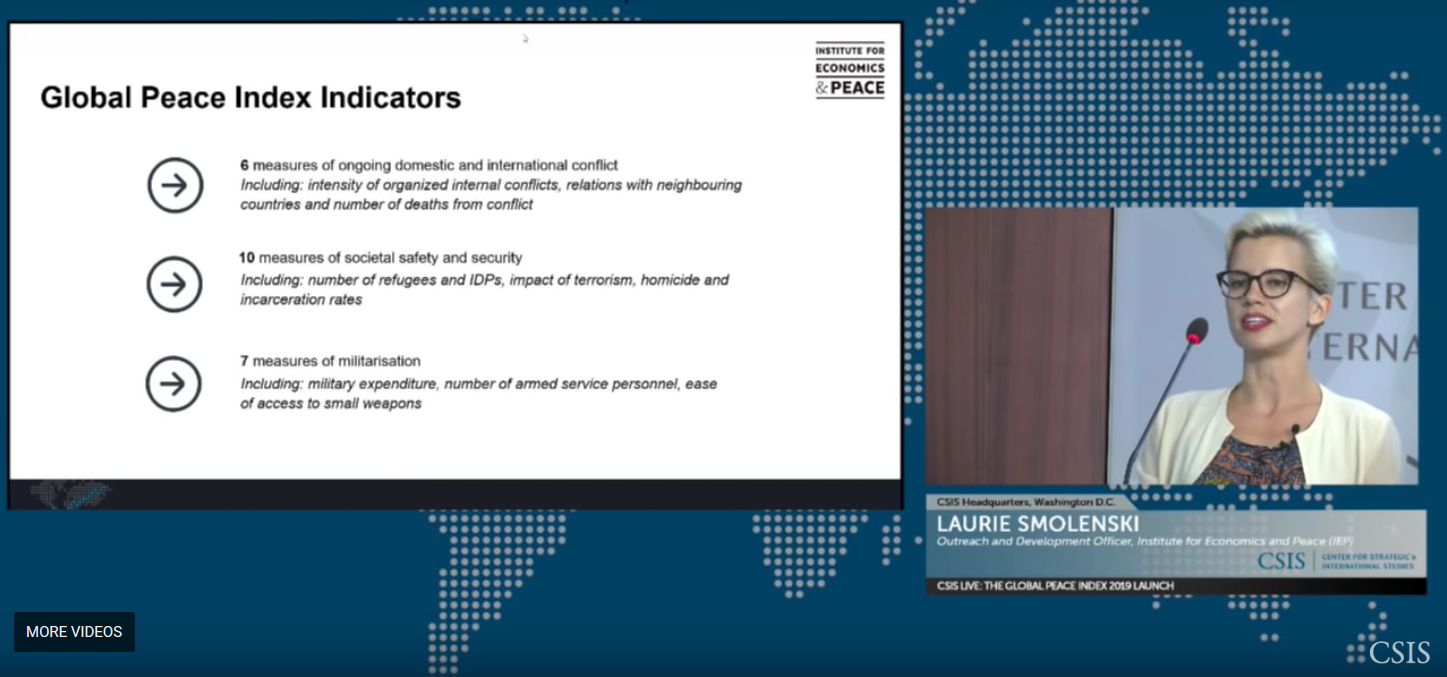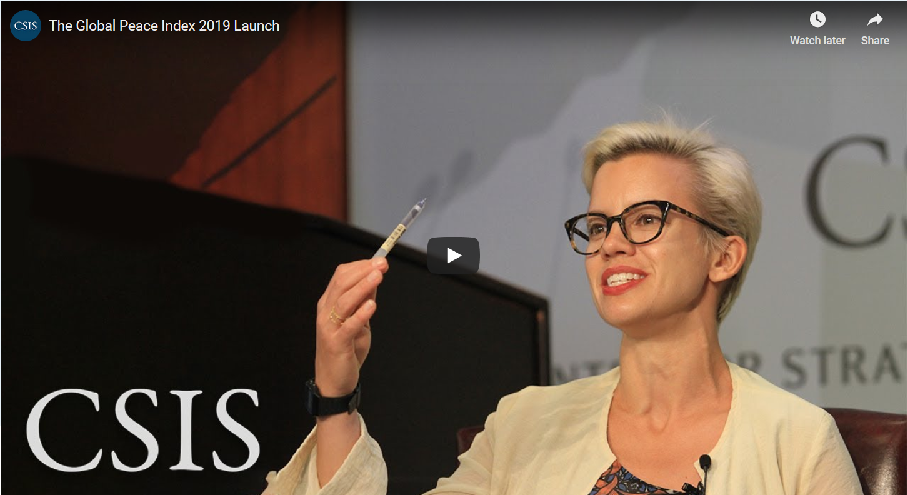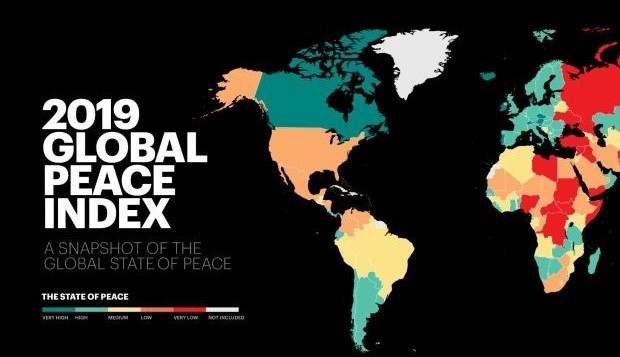The Global Peace Index 2019 rankings, released earlier this month, demonstrate that ‘Global peacefulness has improved for the first time in five years,’ but that for most of the countries possessing nuclear weapons their level of peace remains far below the global average, and in some cases has declined even further.
The Index uses 23 statistical indicators to determine the relative degree of peace and security in 163 countries.
The indicators are grouped into three thematic domains: the level of Societal Safety and Security; the extent of Ongoing Domestic and International Conflict; and the Degree of Militarisation. In other words the index looks at both internal peace in a country and the external impact that the country’s policies and practices have on regional and global peace.
The countries are given scores in each indicator from 1 being the most peaceful to 5 being the least peaceful. The scores for each country are then averaged, and all countries are ranked from most peaceful country (with the lowest average score) to least peaceful country (with the highest average score).

Laurie Smolenski presenting the statistical indicators upon which the Global Peace Index country rankings are based.
Produced by the Institute for Economics and Peace (IEP), the GPI presents the most comprehensive data-driven analysis to date on peace dynamics, trends, and key factors in developing peaceful societies. The Index also makes correlations between levels of Positive Peace and economic indicators, demonstrating the economic value of peace.
‘Higher levels of Positive Peace in a country correlate very closely with positive economic outcomes including stronger exchange rates and sovereign credit ratings and higher GDP growth, coupled with greater gender equality and better environmental resilience,’ said Laurie Smolenski, Outreach and Development Officer for the Institute for Economics and Peace speaking at the Washington DC launch of the 2019 Global Peace Index on June 20, 2019. The event was hosted by the Center for Strategic and International Studies.
Nuclear weapons and the Peace Index
With regard to the nuclear armed countries, the United Kingdom is ranked at number 45 on the Global Peace Index, France is ranked at number 60, China at 110, USA at 128, India at 141, Israel at 146, DPRK at 149, Pakistan at 153 and Russia at 154.
While one cannot claim that the possession of nuclear weapons is a causative factor for a low level of a country’s peace rating, the correlation between nuclear weapons possession—one of the 23 indicators in the GPI—and low rankings is at least cause to question the argument that nuclear weapons enhance peace and security.
‘Nuclear deterrence is based on the threat of massive violence, plus military preparations to possibly launch such violence,’ says Alyn Ware, Co-founder of Move the Nuclear Weapons Money and Global Coordinator for Parliamentarians for Nuclear Non-proliferation and Disarmament (PNND). ‘Such a provocative, violence-based security framework runs counter to a conflict-resolution approach, and tends to correlate to similar violence-based approaches in a country’s domestic policies and other foreign policies.’

Laurie Smolenski presenting the 2019 Global Peace Index rankings at the Washington DC launch of the GPI. Click here to watch the video of her presentation and following discussion.
Investing in violence or in peace?
Another aspect of the report relevant to the nuclear weapons issue is the relative levels of national and global investment in violence versus investment in peace.
‘The world continues to allocate enormous resources on creating and containing violence but very little on promoting peace,’ said Ms Smolenski speaking at a Move the Nuclear Weapons Money event at the United Nations on May 7, 2019. ‘The data from the GPI and the Positive Peace Report give some indication of the incredible benefits we would reap by divesting in violence and investing in peace.’
Some of these benefits are highlighted in the SANE Act (Smarter Approach to Nuclear Expenditure) which PNND Co-President Senator Markey intends to re-introduce into the US Senate within the next few months. They will also highlighted in the Count the Nuclear Weapons Money action to take place in New York in UN Disarmament Week 2019.
Over 7 days an 7 nights, activists, legislators, religious leaders, youth, artists, celebrities and others will count out $1 trillion – the nuclear weapons budget for the next 10 years – and symbolically reallocate this to better purposes including peace, health, education, climate protection, renewable energy, poverty alleviation etc…
Click here for more information or to join the Count the Nuclear Weapons Money action.

